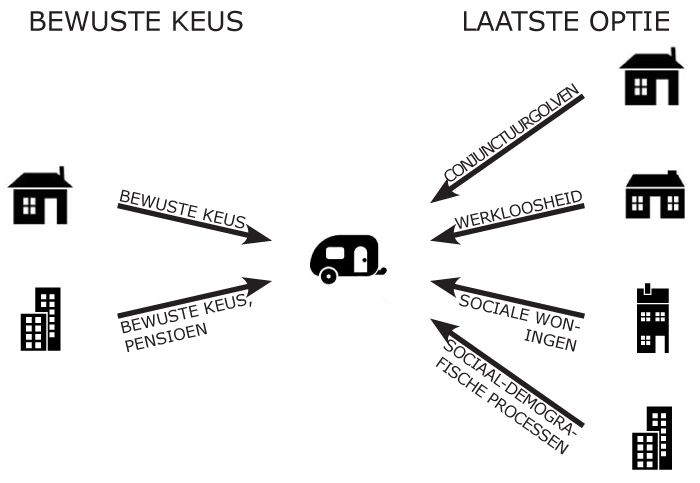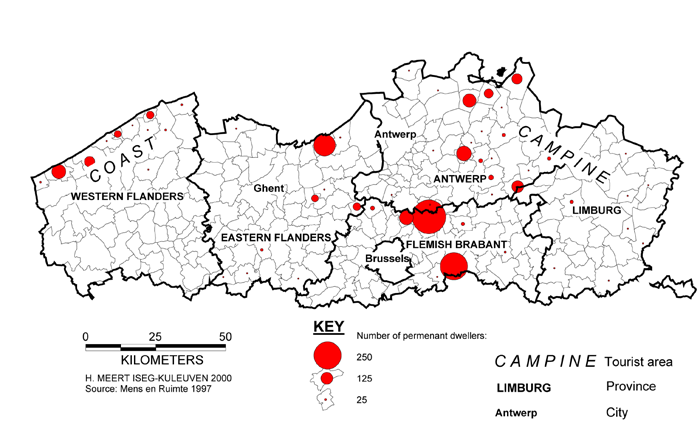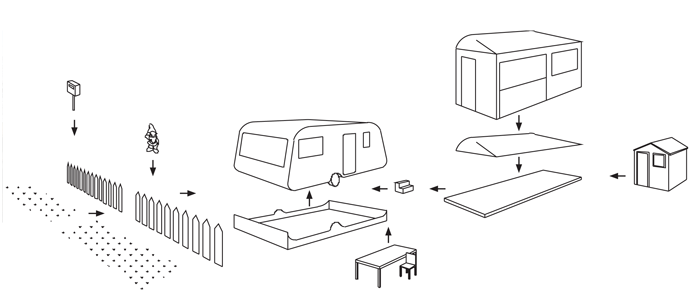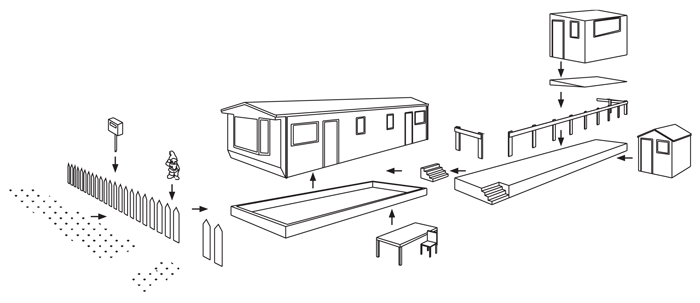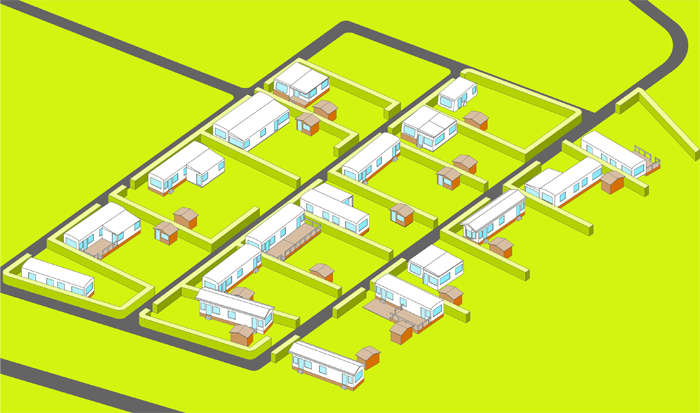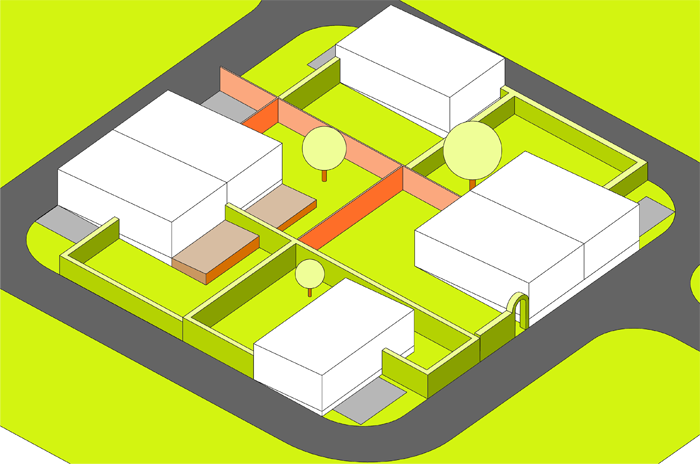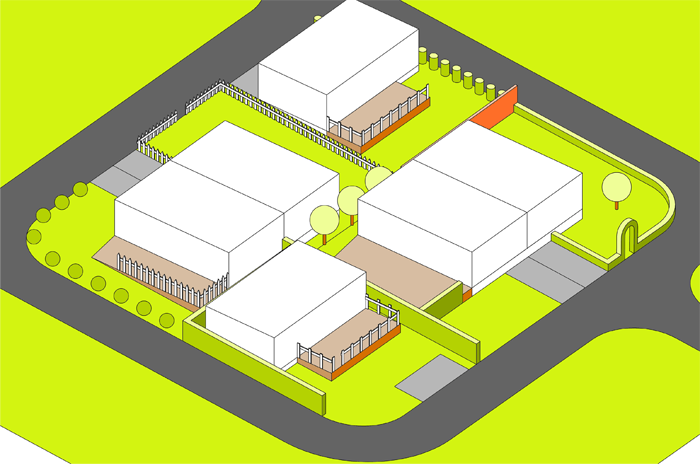type
organisation
Research thesis
2 Master Urbanism
and Spatial Planning
Sint Lucas
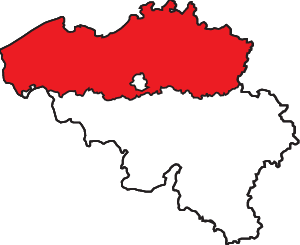
The purpose of this research thesis was to examine whether permanent campground dwelling is a way of living with a future or not? For this I examined the spacial consequences in case permanent campground dwelling becomes a formal way of living. The occupation of a caravan on a campground for one week gave me the opportunity to experience and examine this phenomenon up close. Among other things I examined evolutions, habits and structures. After that I examined the necessary terms and conditions to guarantee optimal integration for these new housing types. The findings mentioned above are conform the policies provided by RISO Vlaams-Brabant and are tested through a case-scenario.
Supervising lecturer: Pascal De DeckerMentor: Caroline Newton
The new zoning small scale living (presented by RISO Vlaams-Brabant) could be a form of living which supplements the current housing market. But I have to warn that eventually this new zoning will not benefit by the target group.
This evolution is already visible on site. The moment the grounds are rezoned, they lose their illegal status, this results in the rise of their value, making investments attractive. The regulations to prevent the formation of housing for the fortuned are the prohibition to parcel out the terrain and a limitation of the surface area and the volume of the dwellings. Nevertheless one can develop a project that aims on people who are more fortunate than the target group. The financial benefit for the owner and the lack of affordable renting houses will lead to the social exclusion of the target group.
Permanent campground living is a form of living with a future if it concerns social housing-projects focused on campground dwellers. This doesn’t mean campground living in it’s current form but social housing projects which take into account the wishes and needs of the campground dweller.
Thanks to the in-depth research it became clear that the exterior space around the caravan is very important for the social contacts and representation. While creating social housing focused on campground dwellers, it will be of great importance to take this into account. It means that one has to provide this exterior space while designing social housing projects focused on campground dwellers. The positioning of the dwellings in relation to the exterior space and each other will be a crucial factor to create social structures and forms of representation.
As the origins of permanent campground dwelling are inextricably linked to economic influences, it will be essential to take this into account while seeking for solutions. The existing strong social structures constitute the largest economical integration sphere, the one of reciprocity. While seeking solutions for permanent campground dwelling it will be of great importance to preserve these structures as much as possible. At the same time one has to strengthen the two other integration spheres, the one of redistribution and the market, that way one can ensure a positive economical situation for the campground dwellers. Therefore it will be of great importance to choose locations close to the village center while looking for areas to implement social housing-projects focused on campground dwellers. This location, where the integration spheres of redistribution and market are present, will ensure the possibility of economic integration of the campground dweller.
Apart of this all, one can observe that there are different types of systems - that have already been installed or grew there in an natural way - which are now implemented in urban interventions. Systems of reciprocity like the ‘torekes’, or the ‘ik-u’s’ are examples of this. Permanent campground dwelling can be considered as a form of collective housing where different functions and spaces are shared. This is another example of a system which is now being used in urban interventions. We can conclude that there are different valuable systems present on the campground on which we can inspire ourselves to create new urban interventions. For this it will be crucial to keep on doing research on campgrounds in their actual state, in particular campgrounds were permanent campground dwelling is still going on in it’s original state.
